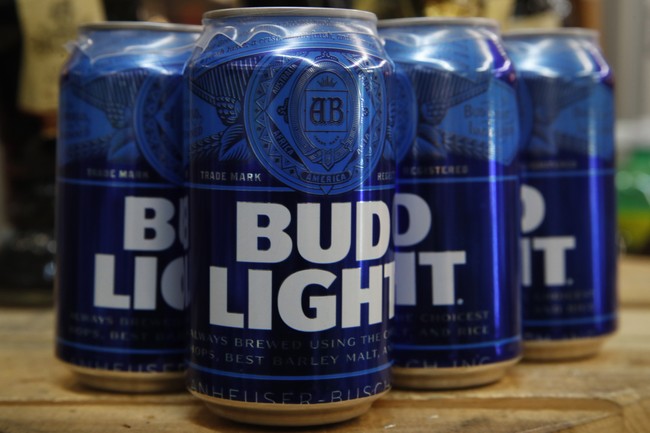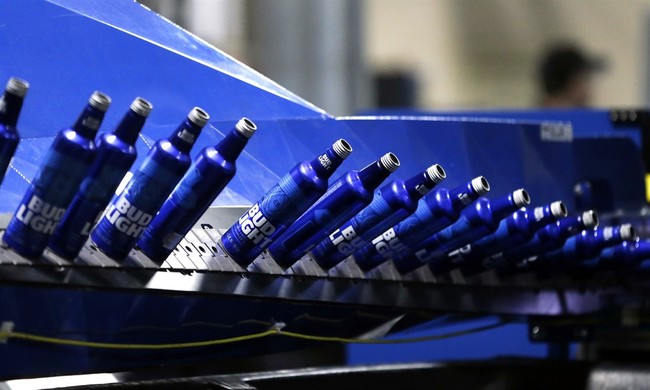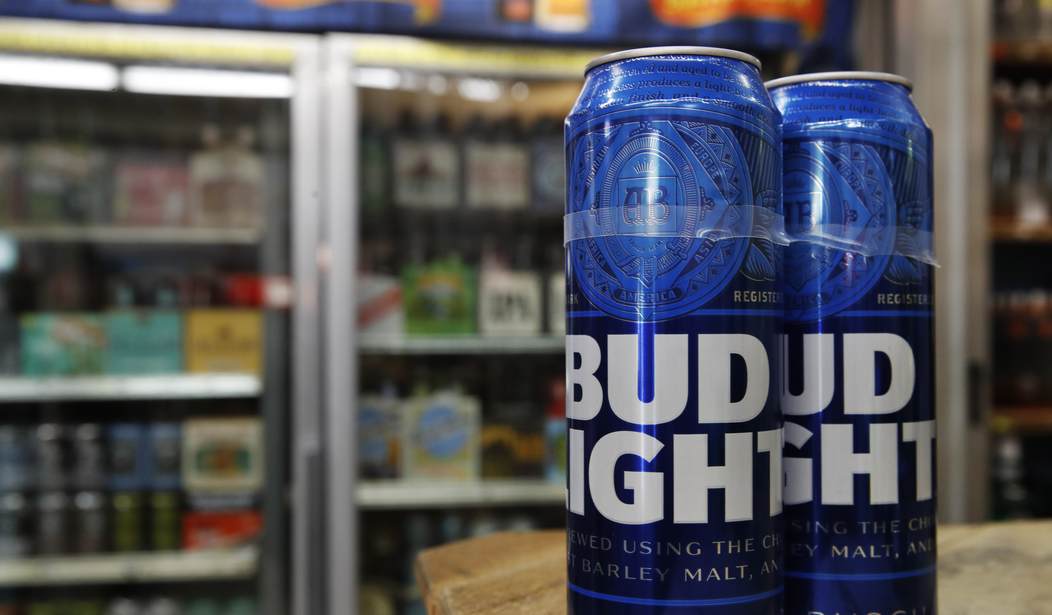By now, most are aware of the overflowing controversy regarding the foremost beer brand in the nation, Bud Light. Many initially felt it was a prank when on April 1, the country’s inexplicable face of the trans movement, Dylan Mulvaney, revealed being feted by the beer brand. Mulvaney’s face is seen beaming from a printed beer can, and a few videos came out of the spokesmodel cavorting in a bathtub, displaying Dylan’s usual histrionics with Bud Light cans on a carousel in the background.
It was all real, as this new advertising partnership commemorated Mulvaney celebrating the one-year anniversary of being a woman. That such a thing is considered notable in the culture is already odd, and a famed brand attaching itself to such is even more of a departure from common sense. The backlash has been notable and more than just social media cranks. One merchandiser for a distributor posted a video on the lack of sales he was seeing in stores. The company stock took a one-day -3% hit as the realization of the backlash began to be felt.
There has been an effect on the company to some degree with the Bud Light controversy.
— Brad Slager: Just Watching Walls Moving Out... (@MartiniShark) April 11, 2023
Shares of AB-InBev took a hit after the blowback this month, but it will be a few quarters before seeing the actual sales effects. pic.twitter.com/sNkwZOVqbP
It will take some time to see just how realistic this impact will be, probably over the span of a few quarters, but this rather rapid and rabid backlash cannot be viewed as a positive in any capacity. The question becomes, though, just what was the intent of the beer label in taking this step? While Mulvaney has been developing a brand that has delivered personal success, how beneficial have the corporate partnerships actually become?
Recommended
Dylan has been tabbed to sell a makeup brand, and there was seemingly more of an outcry from women than a benefit. Recently, Nike had Mulvaney touting the merits of a woman’s athletic bra, a curious move involving someone with little need for said product. Even the non-professional arrangements can create marketing nightmares. Mulvaney has posted videos regarding tampons, and the company Tampax in November posted a now-deleted gag tweet regarding their usage. It led to calls for boycotts of its products.

AP Photo/Jacquelyn Martin, File
This all draws up the question of why companies are choosing this path, and in the case of Bud Light, it bears real analysis. This is not about approval/disapproval of the trans movement or the proper levels of support this faction always demands. Please, they have quite the support already. It is notable that the trans demographic claims to be marginalized while it enjoys the backing of corporate America, the media, and all the way up to seeing support from the White House. Most people would appreciate a fraction of that kind of “marginalization.”
Ultimately you need to look at the numbers.
The credit, or blame, of the Mulvaney partnership with the beer brand has fallen to the feet of Alissa Heinerscheid, Vice President of Bud Light. She is the first woman to helm the brand, and in a vid-cast interview just ahead of the Dylan Mulvaney announcement, she explained some of the moves intended for the marketing of Bud Light. The series of social signaling buzzwords she employs explains so much of where the focus of the branding seems to rest.
The BudLight exec behind the Dylan Mulvaney Campaign. ⬇️⬇️⬇️
— Oli London (@OliLondonTV) April 10, 2023
Alissa Heinerscheid, who uses she/her pronouns on her LinkedIn is BudLight Vice President of Marketing.
Prior to the release of Dylan’s campaign she said the brand needed to “evolve” and push for “inclusivity”
“It… pic.twitter.com/iIhUDl2GMM
Heinerscheid manages to touch on so many of the issues without recognizing them at the same time. “Evolve and elevate,” “inclusivity,” and “representation” are all the types of phrases dropped by the social activist set. These are not tangible marketing strategies, however. She also denounces the “fratty” mentality attached to the brand. That mentality, mind you, had built the Bud Light name into the top-selling beer, but she sees the need to move away from that success.
She also hit on a reality for beer brands when she mentions attracting young drinkers. Beer, especially, is a product that sees an entrenched loyalty with established drinkers. So yes, she is correct in wanting to draw in emerging beer-drinking customers, but she is incorrect in thinking this is the proper course. It is far more likely that Bud Light is repelling more of those young, new beer drinkers than they are attracting with this Dylan Mulvaney partnership. Heinerscheid might want to decry the frat house methodology, but how many of those college chapters will now be looking for another brand to fuel their beer pong tournaments? The reality is in the numbers.
The number of adults in America described as transgender totals less than 1%. Now any marketer will tell you that you will never win over the entirety of a targeted group of customers. Even with an unknowable figure of how many trans beer drinkers will be swayed to take up Bud Light, that minute base means the final tally will be infinitesimally small. Now consider the number of dedicated drinkers to the label you have driven off in this marketing effort, and you begin to grasp the folly of it all.

AP Photo/Jeff Roberson, File
While it might sound proper to drop words like “inclusivity” in order to align your brand with an acceptable level of virtue signaling, what is a reality is that these social media activists have a proven track record of not supporting these causes in the marketplace. Disney experienced this last year, as it offered up a number of entertainment releases with woke messaging, which were routinely avoided by audiences, leading to losses. There was the gay rom-com movie “Bros” that basically defined a woke motion picture release, and it was not even supported by the gay community, becoming one of the biggest bombs of 2022.
It is not intolerant to suggest that this was a complete marketing misfire; there are basic demographic realities to look at. When you make Dylan Mulvaney the national face of your brand, you will receive a national response. It is not transphobic to say this was a mistake, but the move may have been profit-phobic.

























Join the conversation as a VIP Member